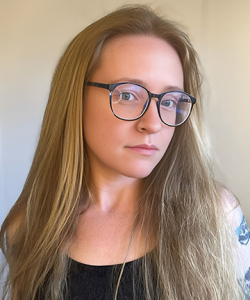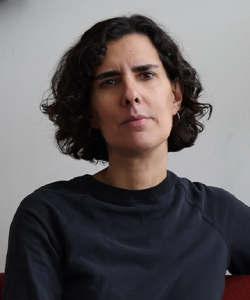Amanda Lee Koe
In this 2024 Vogue Singapore video, Amanda Lee Koe talks about some of her favorite books, exploring identity through her work, and the themes of sisterhood and autonomy in her second novel, Sister Snake (Ecco, 2024).
Jump to navigation Skip to content
In this 2024 Vogue Singapore video, Amanda Lee Koe talks about some of her favorite books, exploring identity through her work, and the themes of sisterhood and autonomy in her second novel, Sister Snake (Ecco, 2024).
“I don’t like you, but I love you / Seems that I’m always thinking of you” begins the 1962 hit song “You’ve Really Got a Hold on Me,” written by Smokey Robinson and performed by The Miracles. What does the speaker mean by this seemingly contradictory sentiment of loving, but not liking? Write a short story in which the narrative revolves around a character who feels similarly—loving, but not liking another character. It may be a childhood friend with a deep, lifelong bond whom the protagonist is on the outs with or a romantic interest who isn’t measuring up in some way. Depending on the story’s point of view, you might experiment with inner monologue, dialogue, or pay close attention to the physical communication between your characters to gesture toward the emotions at play.

“Nothing makes a clunky sentence more obvious than saying it out loud.” —Margie Sarsfield, author of Beta Vulgaris
“All of the stories, in some way, seem to be about characters moving away from their own points of origin or states of mind.” In this Green Apple Books event, Corinna Vallianatos reads from her story collection Origin Stories (Graywolf Press, 2025) and discusses her fascination with the interiority of characters in a conversation with Colin Winnette. For more from Vallianatos, read her installation of our Ten Questions series.
In this BookTrib interview, Maggie Su speaks about how her debut novel, Blob: A Love Story (Harper, 2025), began as a short story and then a play, and her interests in surreal and speculative stories.
Luca Guadagnino’s 2015 drama film A Bigger Splash follows a couple vacationing on an Italian island whose peace is disrupted by the unexpected arrival of an ex-lover with his daughter in tow. Marianne, a world-renowned rock star, has just had a surgical operation leaving her unable to speak throughout the film, with the exception of occasional whispers. This week write a short story that builds a sense of tension by having a typically expected mode of communication temporarily shut down. What misunderstandings occur? While one means of communication is hindered, is there another method that compensates for the loss?

“If a story gathers force by what it accrues, this kind of ending is a letting go.” —Corinna Vallianatos, author of Origin Stories
Author and journalist Jessie Tu talks about her experience and expectations for writing her second novel, The Honeyeaters (Allen & Unwin, 2024), and the “colonial and imperialist legacies” around language in a conversation with Annabel Crabb at this Roaring Stories Bookshop event in Sydney, Australia.
“Det finnes ikke dårlig vær, bare dårlige klær” is a rhyming proverb in Norwegian that means there’s no bad weather, just bad clothing. This sentiment points not just to a high value of functional comfort, but to the cultural importance of time spent outdoors—especially in a country whose inland regions see considerably cold temperatures and snowfall. Write a short story in which the main action is set in motion by a discrepancy between a character’s choice of clothing and the weather, such as light clothing on a frigid day, too many layers that prove to be too hot, or delicate clothing that encounters splattered mud or dust storms. What are the circumstances that lead your character to don an inappropriate ensemble? Consider what the initial decision, the response, and the ultimate conclusion reveal about your character’s personality and motivations.
In this Waterstones interview, Asako Yuzuki discusses the process of writing and publishing her novel Butter (4th Estate, 2024), translated from the Japanese by Polly Barton, and shares her thoughts on the book’s themes of food and desire. Yuzuki’s novel was selected as the Waterstones Book of the Year for 2024.